Module Club Dnipro: DJs at the front
Music and parties have been out of the question since the Russian large-scale attack on Ukraine. Members of the Module Club Dnipro fight for their freedom on the front lines.
Machine guns instead of mixing desks: With the large-scale Russian offensive in Ukraine, more than 100,000 volunteers from civil society volunteered for the Territorial Defense Units (Війська територіальної оборони) by the beginning of March alone. In the various units there is also a community of around 30 fighters who are otherwise connected by a night club: the Module Club Dnipro.
Actually a peaceful community
DJs, bartenders, technicians and party people are suddenly defending their country so that they can party in the future like in the past. “Before the war we were a really peaceful community,” emphasizes co-founder Evgen Goncharov. In addition to extensive celebrations, the rights of LGBT people (the first Pride was to take place in Dnipro this year) and animal welfare were also on the agenda. Because the Module Club is more than a nightclub: a place where free people can live it up, the project basically has existed longer than the locality. The name alone should embody the constant transformability.
Instead of flyers, the modified logo now adorns the Velcro band on bulletproof vests, bass from the speakers gives way to the sounds of shots and explosions. In the course of this, Goncharov’s field of work has also changed fundamentally. “I can use my organizational skills,” he sees his strengths playing out. As a civilian, he could better help his country than at the front.
Fundraising instead of event organisation
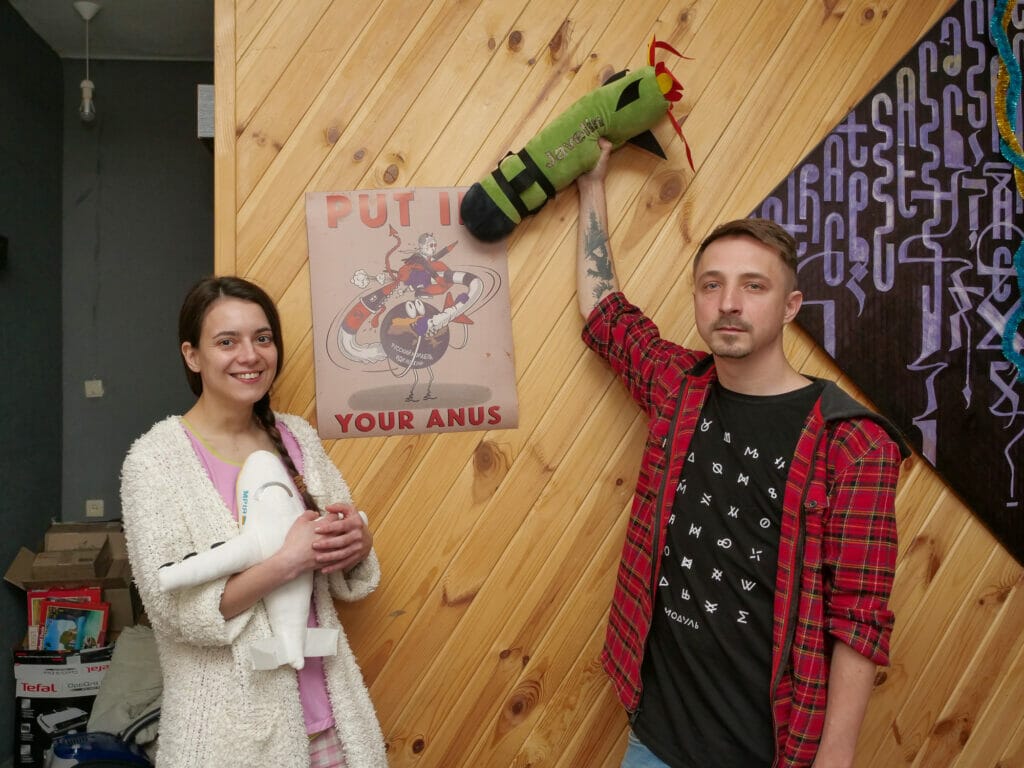
Meanwhile, Goncharov does not rule out using the weapon himself:
I think it’s quite likely that at some point in the future I’ll be more useful on the front lines myself as well.
The 35-year-old is currently organizing accounts on social media, managing the fundraising campaign, procuring equipment for comrades at the front and making sure that it gets there. Helmet covers, bulletproof vests, drones or walkie talkies are currently stored in his apartment in Dnipro; the 130 helmets from China were delayed due to delivery problems. The group has also already purchased four, soon five cars with the $50,000 in donations. There are Molotov cocktails on the balcony which he has filled by himself – in case war gets closer again.
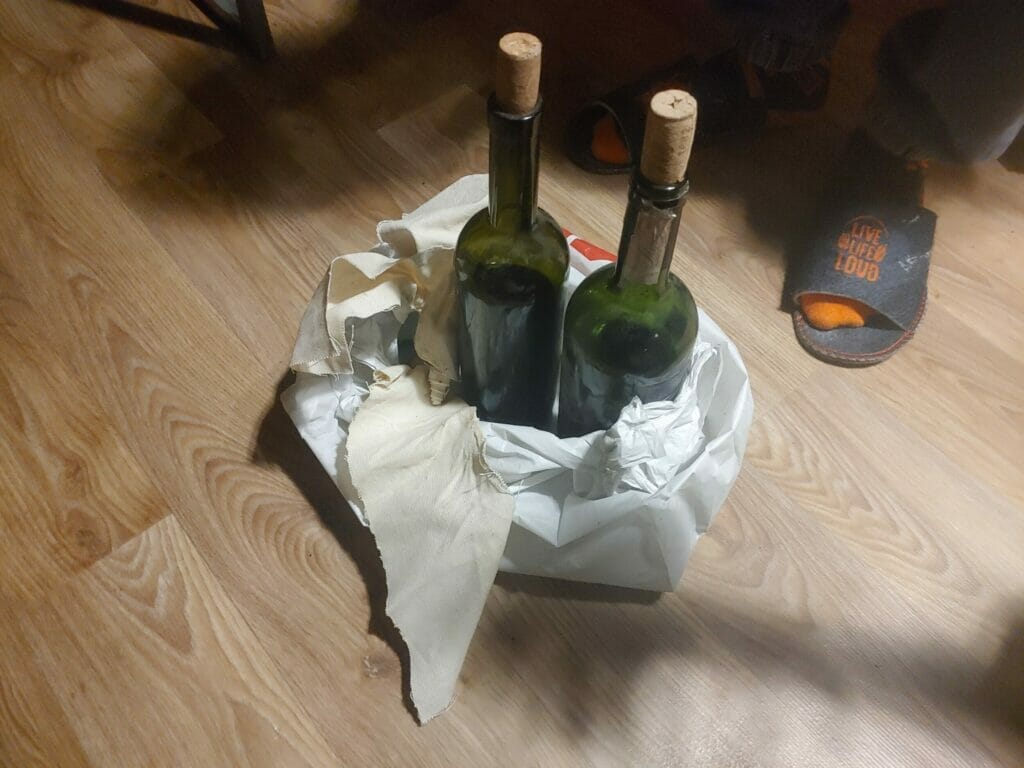
However, this commitment to the module community is not entirely new. Since as early as 2014, it has been welcoming displaced people from the Crimean Peninsula, annexed by Russia in violation of international law, and from the fighting in Donbass region. “We also had people who were in the army,” adds Goncharov; today’s house DJ lost a leg in the war and built a new career here, first as a DJ and later as a music producer. The label “Dnipro Pop” is affiliated with the night club, in which he will soon release an album.
Built by the community
The location itself is less commercial and more community driven, says Goncharov. Previously, the parties had been organized in various clubs in Dnipro, until twelve years ago the premises were found in an old Soviet-era police printing office. “They were set up and developed largely through donations from people. Everyone could contribute something,” he explains.
Therefore, the Module Club likes to describe itself as “Mitsyvnya” (Митцівня), derived from the Ukrainian word Mitets (Митець – artist): a place for artists.
Unpleasent surprise
At the end of February, however, the Module members were not aware of exactly what the they had gotten themselves into with the Territorial Defense. “They haven’t actually read the document,” explains Goncharov; which was more an expression of interest than a contract. Especially since the bureaucracy did not really work in the first chaotic days and information was not yet available. But by signing, the members agreed to be transferred from Territorial Defense to the army – and thus to the front. “It was a surprise and not a pleasant one,” says Goncharov about the late understanding and adds: “But now it’s okay for them.” Now they just wanted to officially become part of the army, to have appropriate validation in the event of an injury or even of death.
So far, neither women nor members of the LGBT community are among the 30 fighters in the Module Squad. However, the members were committed to ensuring that they could flee to the West of the country or to Poland if they so wished. The refugees, in turn, tried to support their comrades at the front.
Fight for life and death
What are they fighting for now? “First: We didn’t start the war,” interjects Goncharov, comparing the war to Ukraine’s fight against the Nazis in World War II, and then elaborating:
“Basically we are fighting for our lives, for our Ukrainian way of life. We defend our culture, our independence and our way of life. We are just fighting for our lives, for survival – because we are in great danger now. We want to be free.”
Part of a European family
He understands the “Ukrainian lifestyle” as a life of freedom with the opportunity to make own decisions about alliances and partnerships. Ukrainians didn’t want to have to listen to anyone or have anything forced on them. “These are just basic freedoms in all areas of life,” explains Goncharov. That is why the country has already experienced several revolutions; no president has held office for more than four years. The Western lifestyle has been the most popular in recent years: “I feel European myself.” He also wants to promote these values as part of a European family in Ukraine.
What a Module Club Dnipro under Russian control would look like?
“Module is not an option if the Russians should come, because as part of the Ukrainian culture and because of my support for the military I would definitely be killed in the first days,” Goncharov is convinced: “They would definitely hunt people like me.”
He now faces the choice of dying, fighting as an insurgent, or perhaps fleeing to a safer city. “That’s why we need weapons. Guns don’t fight, people do. Guns are just a tool like bulletproof vests and helmets,” he argues.
A mighty opponent
Without international help, Ukraine could not hold its own against an overpowering opponent like Russia. Goncharov appreciates the efforts so far and was happy to announce he got a grant from a German institution on the day of the interview. “I can buy better food and pay my rent again,” he breathes a sigh of relief and laughs.
Unfortunately, his country needed more and long-term support. “We don’t even ask to set foot on our ground and fight. But please at least send weapons and support us politically with sanctions against Russia. That helps us a lot,” he addresses the international community: “Don’t forget us and support us as you can.” Because Russia will not stop until it is pushed back by Ukraine. And that can only happen on the battlefield.
Vorgeschlagene Beiträge
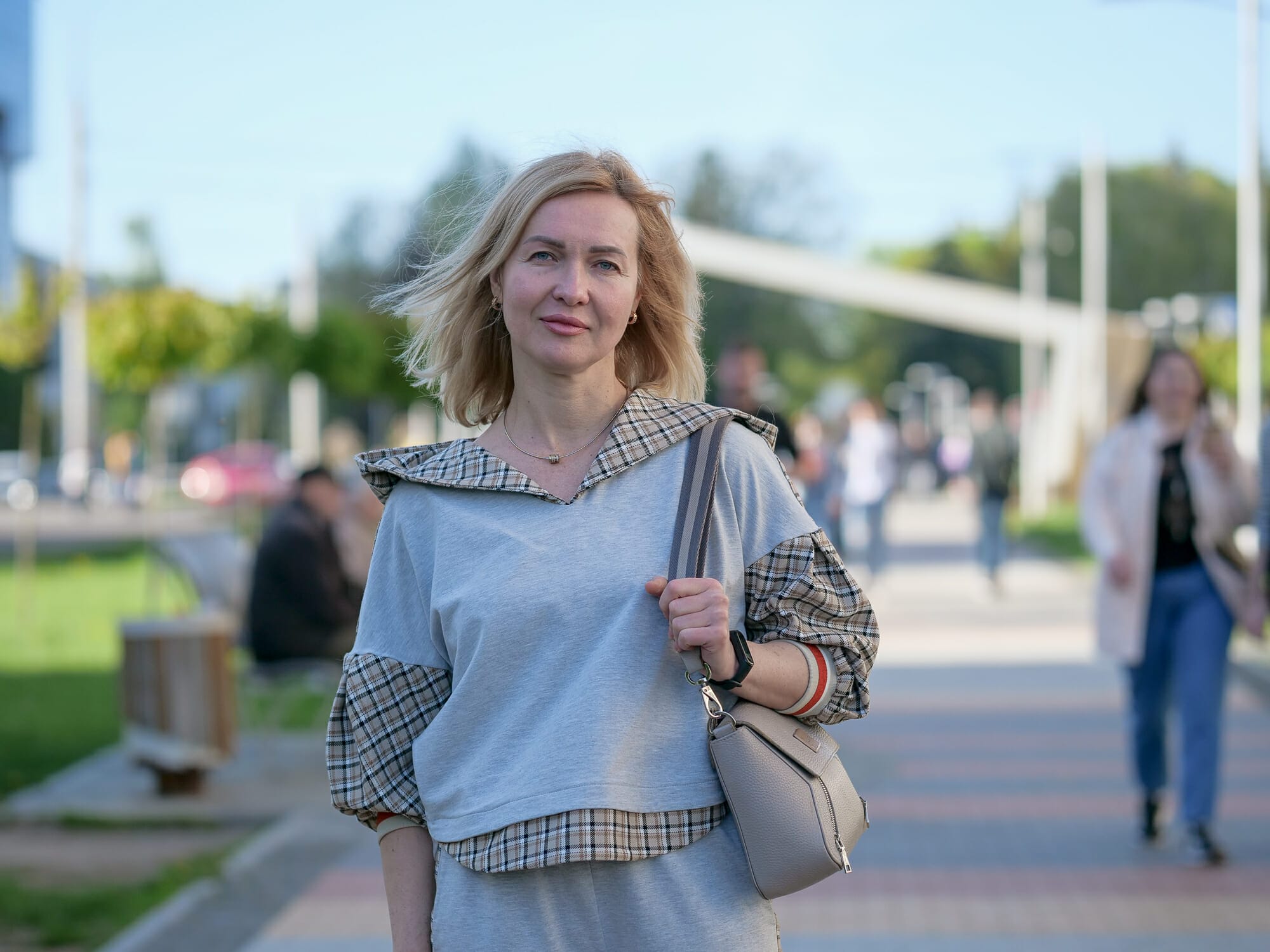
Tatiana Ovays: IDP from Sievierodonetsk starts over in Vinnytsia
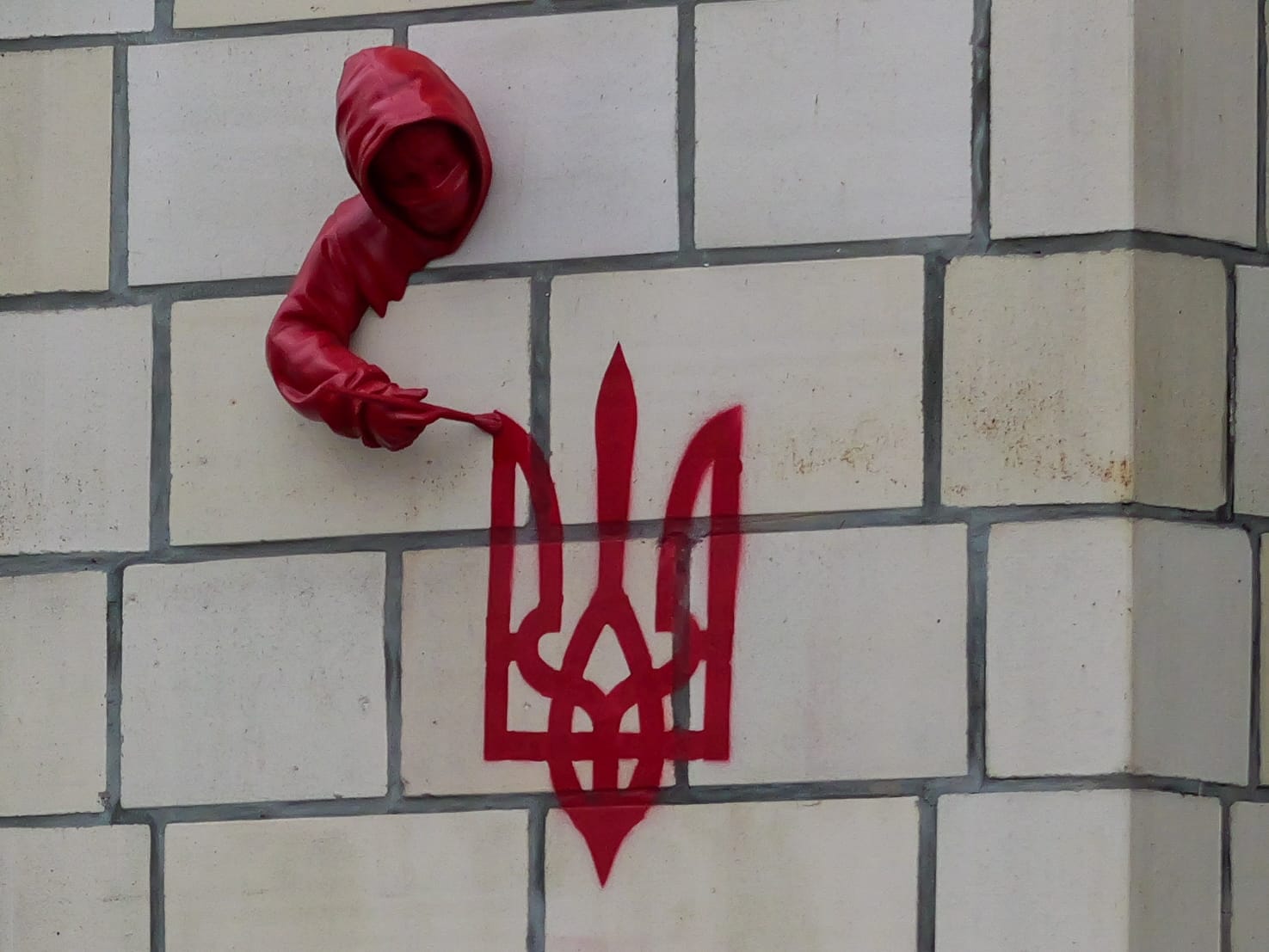
Political scientist explains what opportunities Trump brings for Ukraine
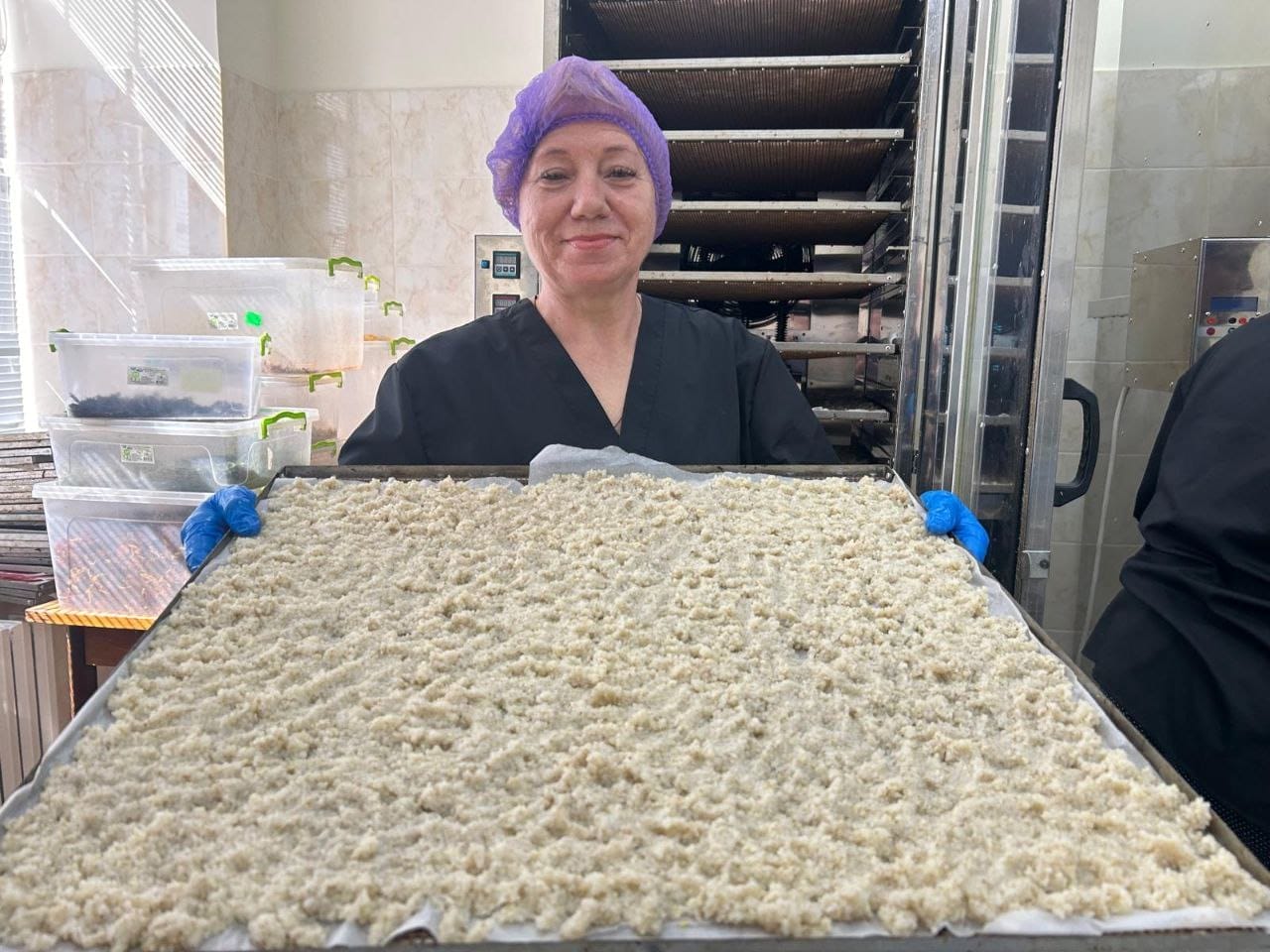
A taste of home: Ukrainian charity sends borscht to the trenches
[mc4wp_form id=239488]

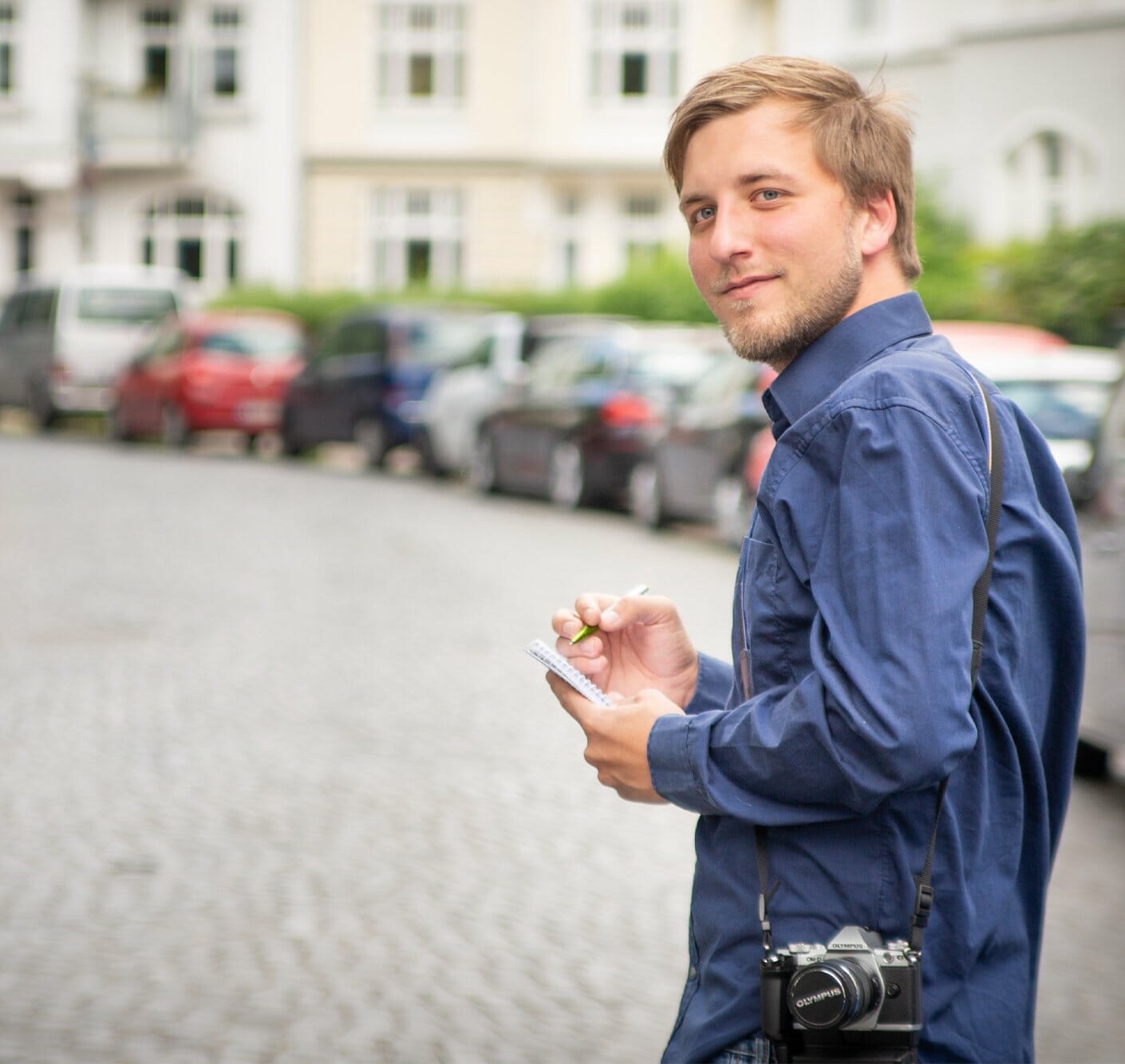
Leave a Reply
You must be logged in to post a comment.